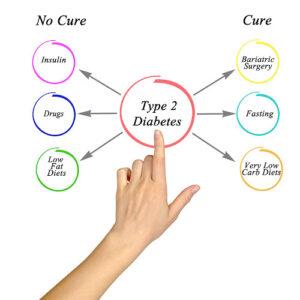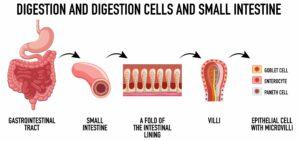Weight loss surgery in USA, also known as bariatric surgery, is a medical procedure designed to help individuals who are severely overweight or obese achieve significant weight loss when other methods like diet and exercise have not been successful or are insufficient.
This type of surgery involves various techniques and approaches, all with the primary goal of reducing the size of the stomach or altering the digestive process to limit food intake, promote a feeling of fullness, and ultimately lead to weight loss.


Weight loss surgery, also known as bariatric surgery, offers several significant benefits for individuals struggling with obesity and related health issues. These benefits can have a transformative impact on a person's physical health, emotional well-being, and overall quality of life, Weight Loss Surgery in USA. Here are some of the key benefits of weight loss surgery:
-
Effective Weight Loss: Weight loss surgery is one of the most effective methods for substantial and sustained weight loss. Patients typically experience significant reductions in excess body weight, leading to improved health outcomes.
-
Resolution or Improvement of Obesity-Related Conditions: Weight loss surgery often leads to the resolution or improvement of various obesity-related health conditions, including:
- Type 2 Diabetes: Many patients see a dramatic reduction in blood sugar levels, and some no longer require medication.
- High Blood Pressure: Hypertension often improves or normalizes after surgery.
- Sleep Apnea: Sleep apnea symptoms may decrease or disappear with weight loss.
- High Cholesterol: Patients frequently experience lower cholesterol levels.
- Joint Pain: Reduced weight decreases stress on joints, alleviating pain.
1. Procedure Description:
Gastric bypass surgery, also known as Roux-en-Y gastric bypass, is a widely performed weight loss procedure. The surgery involves several steps:
- The surgeon creates a small pouch at the top of the stomach, typically only about the size of a walnut. This restricts the amount of food the patient can eat.
- The small intestine is then divided, and the lower part is connected to the newly created stomach pouch, weight loss surgery in USA, allowing food to bypass the rest of the stomach and the upper part of the small intestine.
- This rerouting of the digestive system results in reduced calorie absorption and helps with weight loss.

Cons:
B. Gastric Sleeve Surgery
1. Procedure Description:
Gastric sleeve surgery, also known as sleeve gastrectomy, involves the removal of a large portion of the stomach, leaving behind a small, banana-shaped "sleeve" or pouch. The procedure includes:
- The surgeon removes approximately 75-85% of the stomach.
- The smaller stomach limits food intake and reduces hunger-inducing hormones, aiding in weight loss.
2. Pros and Cons:
Pros:
Cons:
C. Adjustable Gastric Banding (Lap-Band)
1. Procedure Description:
Adjustable gastric banding, commonly referred to as Lap-Band surgery, involves the placement of an inflatable band around the upper part of the stomach. The procedure includes:
- The band is connected to a small port placed just beneath the skin of the abdomen, allowing for adjustments.
- By tightening or loosening the band through the port, the size of the stomach pouch can be modified to control food intake.
Pros and Cons:
Pros:
Cons:
READ MORE- Best Gastric Sleeve Surgery For Weight Loss | BE LITE WEIGHT
D. Biliopancreatic Diversion with Duodenal Switch (BPD/DS)

1. Procedure Description:
Biliopancreatic Diversion with Duodenal Switch (BPD/DS) is a complex weight loss surgery that combines restrictive and malabsorptive components. The procedure involves:
- Creating a smaller stomach pouch similar to a sleeve gastrectomy.
- Diverting the majority of the small intestine reduces nutrient absorption.
- The rearrangement of the digestive tract limits both food intake and calorie absorption.
2. Pros and Cons:
Pros:
Cons:
Certainly, here's the content for the section on "Eligibility Criteria" as per your outlined structure:
Before undergoing weight loss surgery, individuals must meet certain eligibility criteria to ensure the procedure's safety and effectiveness. These criteria encompass physical, medical, and psychological considerations. Here are the key factors determining eligibility:
The Body Mass Index (BMI) is a widely used tool to assess whether a person qualifies for weight loss surgery. BMI is calculated using an individual's height and weight and is a numerical representation of their body fat. Different types of weight loss surgeries may have varying BMI requirements, weight loss surgery in California, but a BMI of 40 or higher typically qualifies as severe obesity. Additionally, individuals with a BMI of 35-39.9 may be eligible if they have obesity-related health conditions, best weight loss surgery in USA. Specific BMI requirements may vary depending on the surgical procedure and the healthcare provider's guidelines.
Weight loss surgery is often recommended when individuals have one or more severe obesity-related health conditions that significantly impact their quality of life and health. These conditions may include:
A psychological evaluation is a crucial component of the eligibility assessment for weight loss surgery. This evaluation aims to ensure that individuals have realistic expectations, understand the lifestyle changes required after surgery, and are mentally prepared for the process. weight loss surgery in USA, Key aspects of the psychological evaluation include:
-
Mental Health: Assessing for conditions like depression, anxiety, or eating disorders that may affect post-operative success.
-
Motivation and Commitment: Determining an individual's readiness to make the necessary lifestyle changes, including dietary adjustments and regular exercise.
-
Support System: Evaluating the presence of a support system, as having family and friends who understand and can assist with the post-surgery journey is essential.
-
Counseling: Recommending counseling or support groups if deemed necessary to address emotional or psychological issues.
Before undergoing weight loss surgery, individuals need to go through a thorough pre-operative preparation process to ensure they are physically and mentally ready for the procedure. This phase involves several crucial steps:
-
Initial Assessment: The journey towards weight loss surgery typically begins with an initial consultation with a bariatric surgeon. During this meeting, the surgeon will assess the patient's medical history, current health status, and weight-related concerns.
- Discussion of Surgical Options: The surgeon will explain the various types of weight loss surgeries available and help the patient determine the most suitable option based on their individual circumstances and goals.
- Informed Consent: Patients will receive detailed information about the surgical procedure, potential risks, benefits, and expected outcomes. Informed consent is a critical part of the consultation process.
- Questions and Concerns: Patients are encouraged to ask questions and express any concerns they may have about the surgery or the recovery process.
- Pre-operative Tests: Depending on the surgeon's recommendations and the patient's health, weight loss surgery in USA, various pre-operative tests, such as blood tests, EKG, or imaging, may be conducted to ensure the patient is physically prepared for surgery.


After you have been scheduled for weight loss surgery, it's essential to understand what to expect during your hospital stay. The length of your hospitalization can vary depending on the type of surgery and individual factors, but here are some general considerations:
Anesthesia and incisions are crucial aspects of the surgical process:
-
Anesthesia: Before surgery, you will be administered anesthesia to ensure you are unconscious and feel no pain during the procedure. The type of anesthesia used will depend on the specific surgery and your medical history. Anesthesiologists and nurse anesthetists are responsible for managing your anesthesia and monitoring your vital signs throughout the surgery.
-
Incisions: Weight loss surgeries are typically performed laparoscopically (minimally invasive) or through open surgery, depending on the procedure and surgeon's expertise. Laparoscopic surgery involves small incisions (usually less than an inch) through which specialized surgical instruments and a camera are inserted, weight loss surgery in USA. Open surgery involves a larger incision. The choice of approach will be determined by your surgeon based on your individual needs.
The duration of weight loss surgery can vary depending on the type of procedure being performed and any specific factors related to the patient's health. Here are some approximate timeframes:
-
Gastric Bypass: Typically takes 2-4 hours.
-
Gastric Sleeve: Usually lasts 1-2 hours.
-
Adjustable Gastric Banding (Lap band): Generally takes 1-2 hours.
-
Biliopancreatic Diversion with Duodenal Switch (BPD/DS): This can take 3-5 hours or more due to its complexity.
The surgical team will work efficiently to minimize the time you spend in the operating room while ensuring the procedure is performed safely and effectively.
The period immediately following weight loss surgery is critical for your recovery:
After weight loss surgery, the transition to a new diet is a crucial part of the recovery process. The post-operative diet typically progresses through several stages to allow the digestive system to adapt gradually. Here's a breakdown of the diet progression:
Maintaining proper nutrition is critical after weight loss surgery, as reduced food intake can lead to nutritional deficiencies. Patients are often prescribed nutritional supplements, which may include:
- Multivitamins: These provide essential vitamins and minerals that may be lacking in the post-operative diet.
- Calcium and Vitamin D: Important for bone health, as calcium absorption can be compromised after certain weight loss surgeries.
- B12 Injections: Necessary for nerve function and energy metabolism, weight loss surgery in USA, especially after procedures that affect nutrient absorption.
- Iron Supplements: To prevent anemia, which can occur due to reduced iron intake and absorption.
Patients should follow their healthcare provider's recommendations for supplement intake closely and undergo regular blood tests to monitor nutrient levels.
Physical activity and exercise play a vital role in the recovery process and long-term success of weight loss surgery. Here are key points to consider:
Post-operative follow-up appointments are essential for monitoring progress, addressing concerns, and ensuring the patient's overall well-being. Here's what to expect:
-
Early Follow-ups: Initially, patients may have frequent follow-up appointments with the surgical team to monitor healing, assess weight loss progress, and manage any immediate issues.
-
Long-term Monitoring: Over time, follow-up appointments become less frequent but remain crucial. They often include nutritional assessments, blood work to check for deficiencies, and ongoing support for dietary and lifestyle changes.
-
Behavioral Support: Some patients may benefit from regular appointments with a psychologist or counselor to address the emotional and behavioral aspects of weight management.
-
Adjustments and Revisions: Depending on the type of surgery, adjustments or revisions may be necessary to optimize results or address complications. These are typically performed under medical supervision.
Weight loss surgery, while offering substantial benefits, is not without its risks and potential complications. It's crucial for individuals considering these procedures to understand both short-term and long-term risks, as well as the possibility of revision surgeries. weight loss surgery in USA
-
Revision for Inadequate Weight Loss: In some cases, if the desired weight loss is not achieved or maintained, a revision surgery may be considered to modify the initial procedure.
-
Revision for Complications: If complications arise that cannot be managed conservatively, additional surgery may be necessary to correct the issue.
-
Conversion Surgery: In certain situations, a conversion from one bariatric procedure to another may be recommended to address specific problems or weight loss challenges.
Weight loss surgery, also known as bariatric surgery, has demonstrated remarkable success rates and positive outcomes for individuals seeking to overcome obesity and its associated health challenges. In this section, we will delve into the key metrics that highlight the effectiveness of these surgical interventions:
One of the primary objectives of weight loss surgery is to achieve substantial and sustainable weight loss. The success rates in terms of weight loss are typically measured using various benchmarks:
Weight loss surgery is not solely about shedding pounds; it also leads to remarkable improvements in a range of obesity-related health conditions:
Beyond the physical improvements, weight loss surgery can lead to profound enhancements in a person's overall quality of life:
-
Psychological Well-being: Improved self-esteem, reduced depression, and decreased anxiety are commonly reported psychological benefits. Patients often feel more confident and content with their appearance and health.
-
Increased Mobility: best weight loss surgery in USA allows individuals to engage in physical activities and hobbies they might have previously avoided due to obesity-related limitations.
-
Social and Emotional Well-being: Enhanced physical health can lead to stronger personal relationships and increased social engagement.
-
Longer Lifespan: By addressing obesity and its associated conditions, weight loss surgery can extend life expectancy, allowing individuals to enjoy more years of good health.
Weight loss surgery can be a life-changing procedure, but it often comes with significant expenses. Understanding the costs associated with these surgeries is crucial for individuals considering this option.
Navigating insurance coverage for weight loss surgery can be complex, but it's an important aspect of planning for the procedure. Here are key points to consider:
The prevalence of weight loss surgery in the United States has been steadily increasing over the past few decades. This rise can be attributed to several factors, including the growing obesity epidemic and improved awareness of the benefits of bariatric procedures, and weight loss surgery in USA. According to statistics and research:
The demographic profile of individuals seeking weight loss surgery has evolved over the years. Initially, these procedures were often associated with a specific demographic, but that has changed in recent times:
Weight loss surgery techniques have evolved significantly over the years, aiming to improve safety, effectiveness, and minimally invasive options:
These evolving techniques and approaches reflect the ongoing commitment of the medical community to improving the outcomes and accessibility of weight loss surgery for a broader range of patients.
Support groups are an essential component of the weight loss surgery journey, providing emotional encouragement and a sense of community for individuals who have undergone or are considering surgery. These groups offer a safe space for participants to share experiences, seek advice, weight loss surgery in USA, and offer support to one another. Some key aspects of support groups include:
Nutrition counseling is a critical component of weight loss surgery both before and after the procedure. Registered dietitians and nutritionists specialize in helping patients make healthy food choices to optimize their weight loss and overall health. Key aspects of nutrition counseling include:
Online communities play an increasingly vital role in providing support and resources for individuals undergoing weight loss surgery. These communities offer the convenience of connecting with others from the comfort of one's home. Key aspects of online communities include:
BeLiteWeight patient Robert had his weight loss surgery with the surgical team of Dr. Jose Rodriguez-Villarreal, M.D., FACS, in Mexico.. He has lost 153 pounds IN 6 MONTHS. He recently accompanied his cousin to the hospital in Mexico for his surgery and gave us an update on his Gastric Sleeve surgery.
View More Our 50+ Success Stories - Weight Loss Sucess Story
BeLiteWeight patient, Tara, shares her experience one day after having her Gastric Sleeve Surgery with the surgical team of Dr. Jose Rodriguez-Villarreal, M.D., FACS, in Juarez, Mexico.
Best weight loss surgery in USA, BeLiteWeight patient Robert had his weight loss surgery with the surgical team of Dr. Jose Rodriguez-Villarreal, M.D., FACS, in Mexico. He has lost 153 pounds IN 6 MONTHS. He recently accompanied his cousin to the hospital in Mexico for his surgery and gave us an update on his Gastric Sleeve surgery.
View More FAQ - YouTube
1. What is weight loss surgery, and how does it work?
Weight loss surgery, also known as bariatric surgery, includes various procedures that help individuals lose weight by altering the digestive system's functionality. These surgeries restrict food intake or reduce nutrient absorption.
2. What is the most safe weight loss surgery?
The safety of weight loss surgery depends on individual health and the surgeon's expertise. Common safe options include gastric sleeve and gastric bypass. Consult with a bariatric surgeon to determine the best choice for you.
3. Who is a suitable candidate for weight loss surgery?
Candidates are typically individuals with a body mass index (BMI) of 40 or higher or a BMI of 35-39.9 with obesity-related health issues like diabetes or hypertension. Candidates should also have tried other weight loss methods unsuccessfully.
4. How much weight loss surgery cost in usa?
The cost of weight loss surgery in the USA varies widely depending on the type of procedure, location, and insurance coverage. On average, it can range from $10,000 to $30,000 or more.
5. What are the different types of weight loss surgeries available in the USA?
Common weight loss surgeries in the USA include gastric bypass, sleeve gastrectomy, adjustable gastric banding (Lap-Band), and biliopancreatic diversion with duodenal switch (BPD/DS). The choice depends on individual factors and surgeon recommendations.
6. Is weight loss surgery covered by insurance?
Insurance coverage varies, but many plans do cover weight loss surgery if specific criteria are met. It's essential to check with your insurance provider and surgeon to determine eligibility and coverage details.
7. What is the best weight loss surgery in the US?
The best weight loss surgery in the US depends on individual factors and goals. Common options include gastric bypass, sleeve gastrectomy, and adjustable gastric banding (Lap-Band). Consult with a bariatric surgeon to determine the most suitable procedure for your specific needs.
8. What are the potential risks and complications of weight loss surgery?
While generally safe, weight loss surgery carries risks such as infection, bleeding, or complications related to anesthesia. Long-term risks may include nutritional deficiencies, gallstones, and excess skin.
9. Is weight loss surgery successful?
Yes, weight loss surgery can be successful for many individuals in achieving significant and sustained weight loss, but its effectiveness depends on various factors, including the type of surgery and individual commitment to lifestyle changes.
10. Which country is best for weight loss surgery?
The best country for weight loss surgery depends on individual preferences and needs. Some popular destinations include the USA, Mexico, Turkey, and South Korea, known for their advanced medical facilities and experienced surgeons. However, the choice should be based on factors like cost, surgeon's expertise, and accessibility, which may vary for each person.
Weight loss surgery offers a multitude of benefits, ranging from significant weight loss and improved health to enhanced quality of life and reduced risk of obesity-related diseases. These benefits can be life-changing for individuals struggling with obesity.
While weight loss surgery can be highly effective, it is not a magic solution, and patients must continue to make lifelong dietary and lifestyle changes to maintain their results. Ongoing challenges include maintaining a healthy diet, staying physically active, weight loss surgery in USA, and addressing any psychological factors related to eating habits.
The field of weight loss surgery continues to evolve, best weight loss surgery in USA, with ongoing research and technological advancements. Future developments may include less invasive surgical techniques, improved patient outcomes, and a better understanding of the genetic and environmental factors influencing obesity.
In conclusion, weight loss surgery is a powerful tool in the fight against obesity, offering numerous benefits for patients who choose this path. However, it is essential for individuals to seek support and resources, such as support groups, nutrition counseling, and online communities, weight loss surgery in California, to maximize their chances of success and address the ongoing challenges of obesity management. As the field continues to advance, the future holds promise for even more effective and personalized approaches to weight loss surgery.

